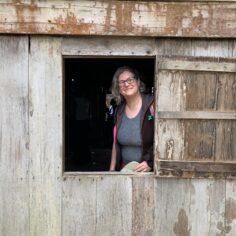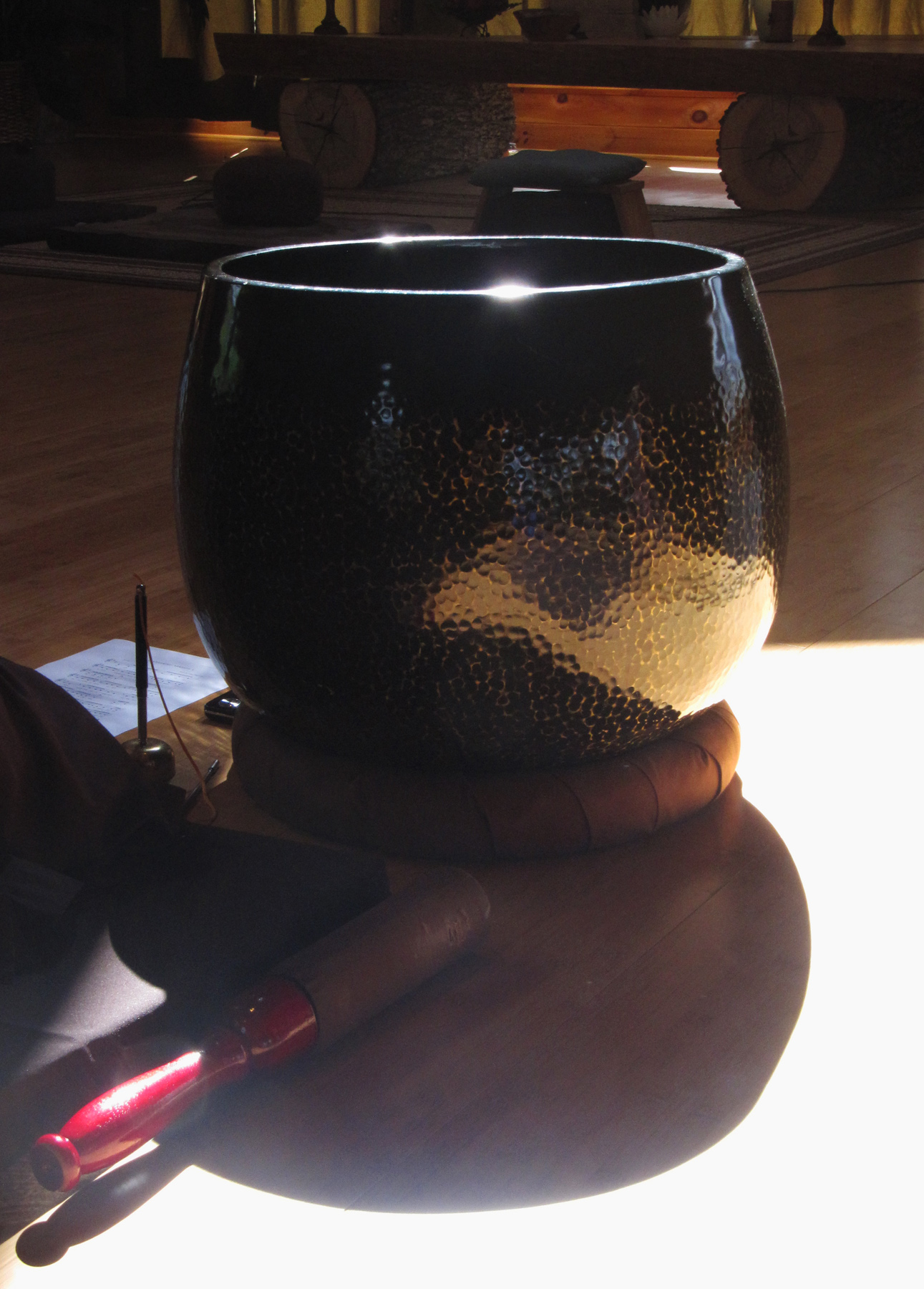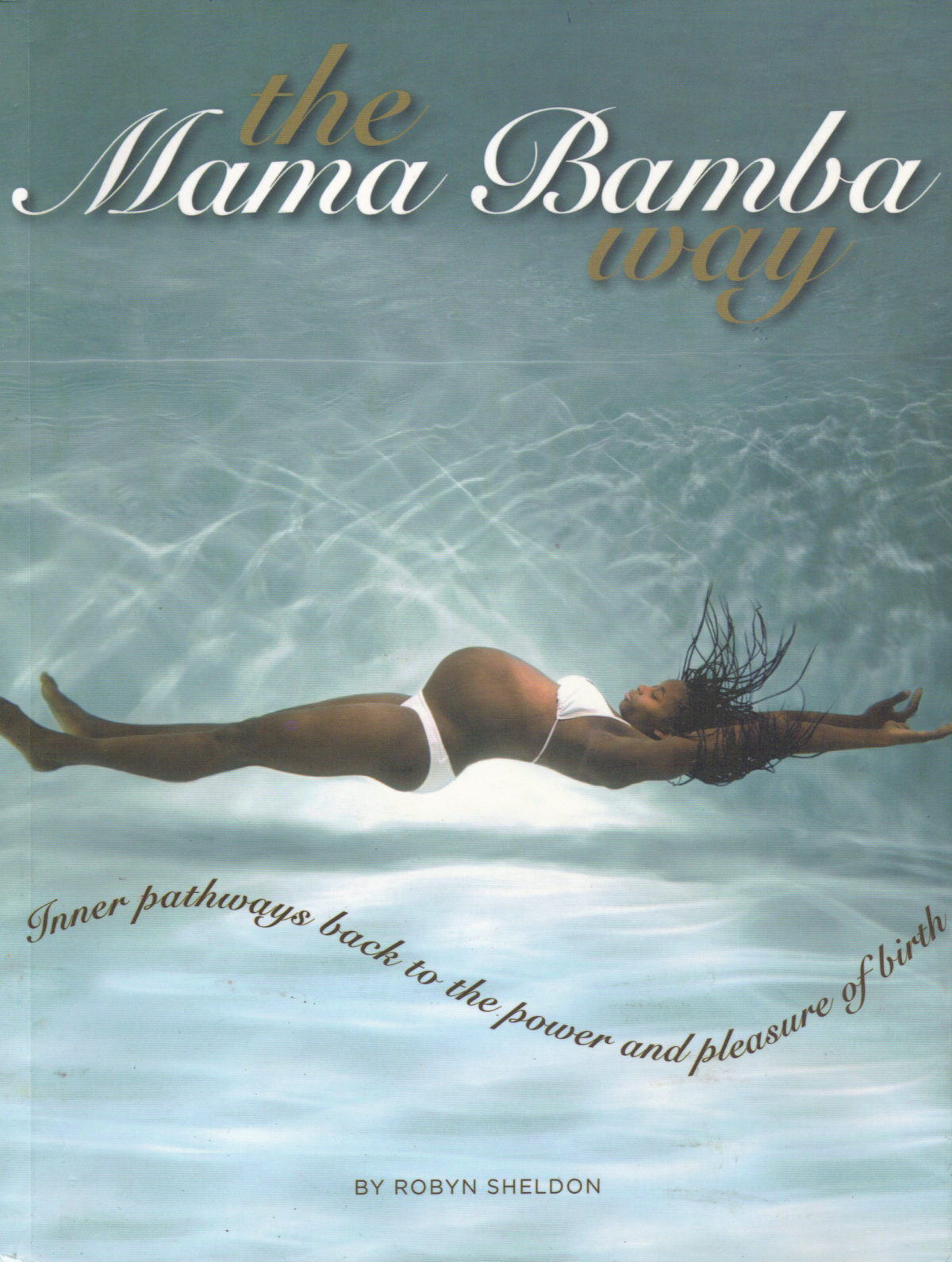
The Mama Bamba Way
The Power and Pleasure of Natural Childbirth
By Robyn Sheldon
Findhorn Press, 2010
Soft cover, 272 pages
Reviewed by Karen Hilsberg
I met Robyn Sheldon when we shared a taxi during Thay’s 2008 tour in Vietnam. I learned that she is a midwife in South Africa who teaches mindfulness to expectant parents.

The Mama Bamba Way
The Power and Pleasure of Natural Childbirth
By Robyn Sheldon
Findhorn Press, 2010
Soft cover, 272 pages
Reviewed by Karen Hilsberg
I met Robyn Sheldon when we shared a taxi during Thay’s 2008 tour in Vietnam. I learned that she is a midwife in South Africa who teaches mindfulness to expectant parents. This led me to reflect on my own experience being born in the 1960s. During the birth, both mother and baby experienced trauma. Not surprisingly, the labor and delivery of my first child were similarly traumatic for mother and baby.
Contrast this to the births described in Sheldon’s new book, aptly subtitled The Power and Pleasure of Natural Childbirth. Sheldon’s main thesis is: “Birth is a baby’s first experience of life. It impacts strongly on how deeply she trusts the world. Her primary need is to feel your attention and welcome at this moment.” This is the basis of the Mama Bamba method of childbirth, developed by Sheldon. The core tools of this approach include meditative awareness, relaxation and surrender, deep exploration of our unconscious processes, connecting with our babies in the womb, and labor support.
Sheldon works with women before labor so that no matter how the birth unfolds, it is a satisfying experience. Being in the moment with openness and receptivity is the fruit of her own daily meditation practice, and she brings this to bear when supporting women during childbirth. In addition to techniques for birthing with integrity and awareness, the book includes beautiful photographs by Nikki Rixon, quotations, and stories of all different sorts of births in the words of the mothers. Intermingled with the text are instructions for guided meditations, relaxations, and visualizations on the topics of simplicity, releasing tension, peaceful birth, the unborn child, and breast-feeding. There is guidance for labor, practical advice for the early months of parenting, and what to do when we suffer from the loss of a baby, preor post-birth. Finally, Mama Bamba is a remarkable example of one woman’s journey to integrate her personal mindfulness practice with her livelihood as a midwife, where she can make a meaningful difference in the way new beings are birthed: with acceptance, peace, and awareness. In the words of our teacher, Thich Nhat Hanh, “The stories, meditations, and lived experience in this book are powerful wisdom for expecting parents. It shows us concretely how to relax into, accept, and transform the fear and pain of birth by coming back to the present moment to be aware of our body and mind.”
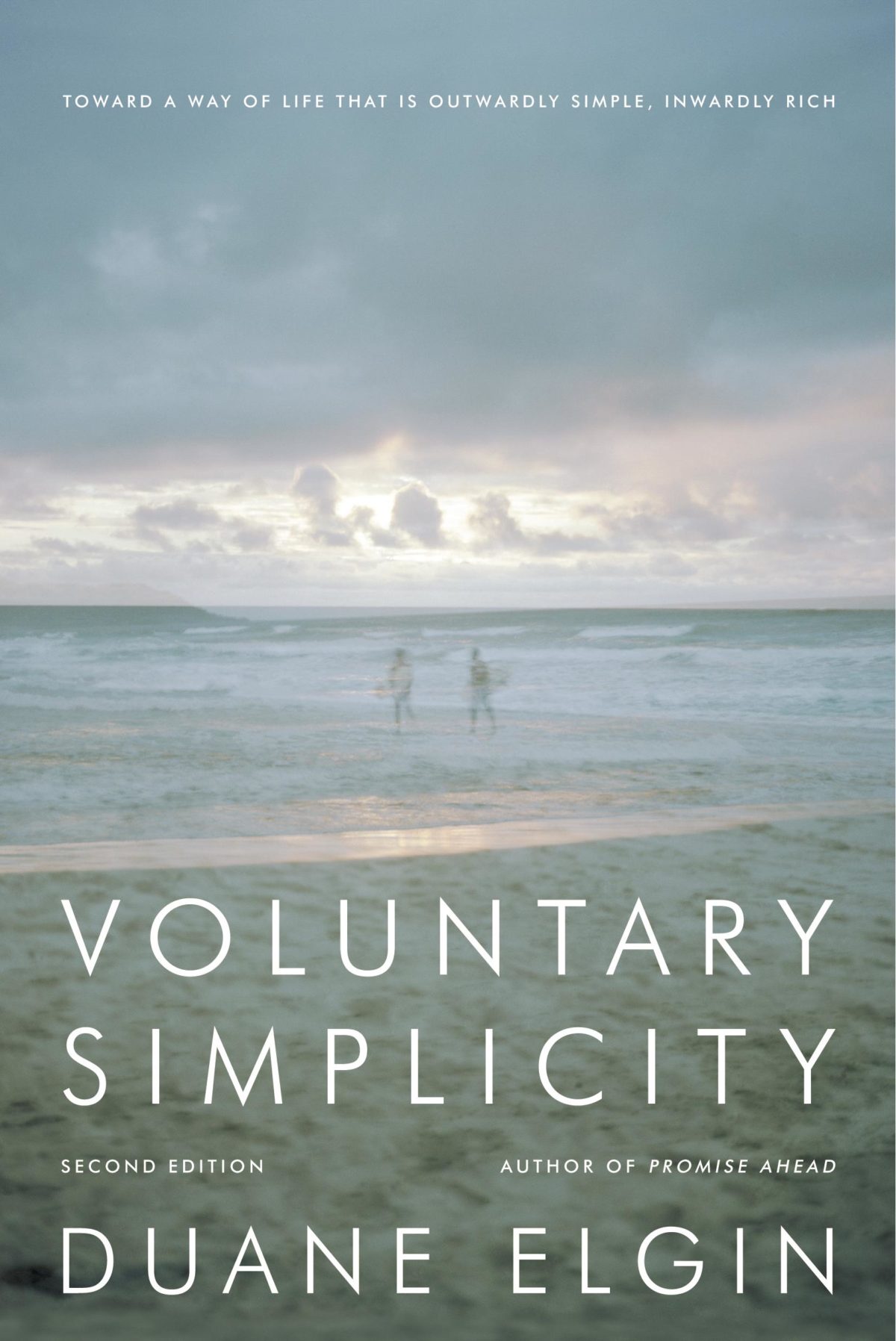
Voluntary Simplicity
Toward a Way of Life That Is Outwardly Simple, Inwardly Rich
By Duane Elgin
Harper, 2nd edition, January 2010
Paperback, 210 pages
Reviewed by Brandy Sacks
Duane Elgin is considered to be the father of the voluntary simplicity movement. In 1981, when his book Voluntary Simplicity was originally published, Elgin’s ideas were widely regarded as counter-cultural and irrelevant. The book was ahead of its time. Now, three decades have passed, and the world is a very different place—a place that is unfortunately similar to the one the author warned us about.
With Elgin’s revised and updated edition we have more ways to learn “a way of life that is outwardly simple, inwardly rich.” Voluntary Simplicity is not about living in poverty but living with balance. By embracing voluntary simplicity—frugal consumption, ecological awareness, and personal growth— people can change their lives. In the process, they have the power to change the world.
The book reaches beyond the how-tos of voluntary simplicity to examine the many psychological, spiritual, and cultural benefits of living more simply and consciously. Elgin makes clear that voluntary simplicity is not self-sacrifice but rather enlightened self-interest, and that this emerging lifestyle choice can foster individual and collective well-being in multiple areas. The depth and significance of Elgin’s ideas are matched by the clarity of his writing, so that Voluntary Simplicity is an education, an inspiration, and a pleasure to read.
In the introduction, Elgin writes: “Overall, the world has changed dramatically since I wrote the first edition of Voluntary Simplicity in the late 1970s. To respond, I’ve completely revised this book and more than half of it is new material. It is my hope this new edition will extend the promising wisdom and healing force of simplicity to our imperiled world, for on the other side of the fast emerging planetary systems crisis is a future bright with promise.”
For more information, see Duane Elgin’s website, www.awakeningearth.org.
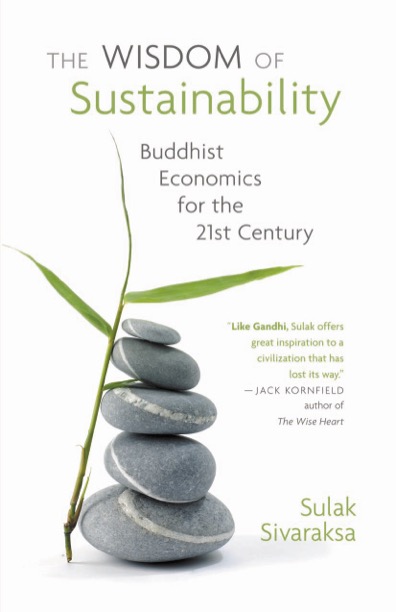
The Wisdom of Sustainability
Buddhist Economics for the 21st Century
By Sulak Sivaraksa
Koa Books, 2009
192 pages

Red Alert
Saving the Planet with Indigenous Knowledge
By Daniel R. Wildcat
Fulcrum Publishing, 2009
128 pages
Reviewed by David Percival
If there was ever a time for the so-called “developed world” to listen to the “less developed world” and the indigenous teachers living among us, that time is now. We—the people who don’t know how to stop—need to pay attention. These two books call us to practice deep listening and let go of much of what we have previously learned.
In The Wisdom of Sustainability, Ajahn Sulak, a lay Thai Buddhist activist and writer, is like an old friend gently but forcefully telling us that we can’t live by consuming alone. Instead, we can make a difference through understanding Buddhist teachings, holding to a moral code, embracing sustainable living, and taking care of ourselves. He takes us through basic Buddhist principles, international development, structural violence, globalization, and governance, and gives us a vision of where we need to go. “Capitalism’s promise to bring about emancipation through perpetual economic growth is, to use Jerry Mander’s word, insane. Nothing can grow forever. There are limits. Before we irretrievably erode the matter of our mother earth, we need to change direction and build a future based on wisdom and compassion.”
Ajahn Sulak tells us to stop exploiting our beautiful earth and her people. Instead, we need to rebuild our economies based on wisdom, understanding, and loving-kindness. E.F. Schumacher coined the term “Buddhist economics”—societies based on sustainability, “where people help each other in difficult times, where power is shared, rather than fought over, where nature is respected, and wisdom cherished.” The author discusses moral governance and the idea of “gross national happiness,” which, in a Buddhist democracy, would be based on compassion and nonviolence, our shared humanity, and the interdependent nature of all beings. He examines the true meaning of “real security” in our changing world.
This short but life-changing book concludes with the metta (loving-kindness) meditation exercise: “May all beings be happy. May all beings be free from suffering. May all beings dwell in peace.”
Red Alert, Daniel Wildcat’s provocative book, is a call to pay attention to indigenous realism and develop “respect for the relationships and relatives that constitute the complex web of life.” He writes: “This alert is also a wake-up call to those always forward-looking societies that have failed to inquire into the modes of living of indigenous peoples that their histories interrupted and ultimately destroyed… a challenge to replace a search for humankind’s general development along a Western-inspired universal timeline with a rethinking of our diverse human cultural development as shaped by places.”
By not paying attention, we marginalize or destroy indigenous peoples and their knowledge. If we would only listen to our indigenous elders and teachers, we could see that their wisdom and knowledge systems are all around us, and that they offer hope. Wildcat explores our fascination with technology and our vast ignorance of indigenous ways of life. This book has the power to awaken us with its wisdom and compassion. It is a strongly worded appeal to pay attention, listen, and throw away our cultural imperialism and “culture of conquest.” It is a brilliant look not only at the mess we have made, but also the hope offered by merely slowing down and paying attention, realizing our interdependent nature, and taking indigenous wisdom seriously. Although Buddhism is not mentioned, this is a very Buddhist book; it reminds us that deep listening brings great rewards.
These two books offer hope and engaged solutions to save our earth from climate change, globalization, consumerism, and materialism, and ultimately from ourselves.
